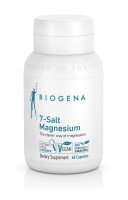No issue polarises more than diet when it comes to fitness. Since everybody has a say (or rather: wants to have a say), normal discussions quickly turn into shoptalk, typical training colleagues into fervent supporters of a certain diet. This is how, over the course of decades, a variety of diet myths were created - having a direct impact: Many who are interested in fitness and diet quickly get lost in a jungle of knowledge and ignorance and are hardly able to distinguish between facts and untruth. We do not want to leave you alone with this - we try to answer questions and separate facts from myths.
Myth 1: The classic about protein intake – “The more, the better“
Quite a few hobby athletes are prone to declare that protein shakes are a staple food. The thinking behind it: Our body should be provided with a sufficient amount of protein, the essential cornerstone for the build-up and maintenance of muscle mass. This might be truth in theory, but it is often lived excessively in practice. Based on scientific recommendations, a protein intake of 2.2 gram per kilo body weight is even sufficient for professional athletes. The so-called BCAAs (branched-chain amino acids) leucine, isoleucine and valine are particularly relevant, with especially leucine being in the focus of research and science.**
Myth 2: Athletes can easily meet their vitamin demand through their diet
This statement might be true in theory, but in practice the differences between people and their micronutrient demand are too individual for drawing general conclusions – you only need to think of vegetarians or vegans, people suffering from food intolerances or food allergies. The fact that renowned researchers want to increase the famous “five a day” (the fivefold intake of fruit and vegetables) to “ten a day” illustrates that the targeted use of micronutrient products clearly makes sense.**
Myth 3: Negative calories through celery and co.
If something sounds too good to be true, it probably is. Foods supposedly burning more calories than they provide fall into this category; typical examples are celery or apples. All of this is based on the effect of food-induced thermogenesis. Food intake results in an increase in energy consumption in the body, measurable in a rise in body temperature and heat emission. The food composition determines the extent of this effect: The energy released in the form of heat is about 2 % for fat, 8 % for glucose, 20-30 % for protein and approx. 22 % for alcohol. Taking the example of celery, we can see that the result of this effect cannot be a negative calorie balance: Assuming that one stalk of celery has 10 kcal and a thermic effect of 20 %, there are still 8 kcal remaining.**
Myth 4: Fruit & vegetables are always better when they are fresh than when they are deep-frozen
This myth is very persistent and is based on the ideal picture of freshly harvested and still crispy vegetables from the garden, full of vitamins and minerals. Long transport and storage times, which significantly reduce the content of key nutrients, keep being ignored. This is not the case for deep-frozen vegetables: They are frozen immediately after harvest, which minimizes the loss in micronutrients.**
Myth 5: All manufacturers of food supplements meet the same quality criteria
In order to optimise their daily diet and meet the increased need in micronutrients, athletes have long been resorting to a broad range of antioxidants, protein products and classic vitamins and minerals. The price is the decisive factor for many of them – even though big differences in quality in the field of micronutrient products are the order of the day. For this reason, it is important to not only consider and compare prices, but to inform oneself comprehensively about the quality of a product.**
**These statements have not been evaluated by the Food and Drug Administration. This product is not intended to diagnose, treat, cure or prevent any disease.


